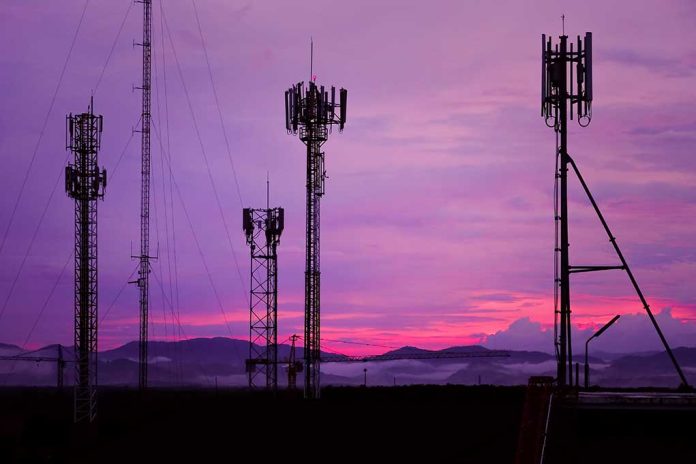
Former Microsoft Canada President Frank Clegg sounds alarm on 5G health risks, challenging FCC regulations.
At a Glance
- Frank Clegg, former Microsoft Canada President, warns of potential 5G health hazards
- Research suggests risks including cancer, DNA damage, and infertility from RF radiation
- Clegg argues FCC regulations are outdated and inadequate
- Landmark court ruling orders FCC to reconsider wireless radiation safety limits
- Calls for updated safety standards and increased public awareness
Former Tech Executive Raises Red Flags on 5G Technology
Frank Clegg, the former President of Microsoft Canada and current CEO of Canadians for Safe Technology, is leading a charge against the potential health risks associated with 5G wireless technology. Clegg’s concerns stem from a growing body of research that suggests serious health implications from radiofrequency (RF) radiation exposure, which is set to increase with the widespread deployment of 5G networks.
Clegg’s stance is unequivocal. He states, “5G will increase ambient levels of wireless radiofrequency radiation. Peer-reviewed research has demonstrated a myriad of adverse effects from wireless radiofrequency radiation including increased brain cancer, DNA damage, oxidative stress, immune dysfunction, altered brain development, damaged reproduction, sleep changes, hyperactivity, and memory damage.”
Outdated FCC Regulations Under Fire
At the heart of Clegg’s advocacy is a critique of the Federal Communications Commission’s (FCC) current regulations. He argues that these guidelines, established in 1996, are woefully outdated and do not reflect the current scientific understanding of RF radiation effects or the technological advancements of the past decades.
This concern was validated by a landmark ruling on August 13, 2021, in the case of Environmental Health Trust et al. v. FCC. The court found that the FCC had violated the Administrative Procedure Act by failing to adequately consider the extensive scientific evidence submitted since 2013 regarding non-cancer health effects of low-level RF radiation.
Call for Updated Safety Standards and Public Education
The court’s decision mandates that the FCC must reconsider its guidelines based on current scientific evidence. This ruling has global implications, as many countries rely on FCC guidelines for their own regulations. Clegg and other advocates are calling for updated safety standards that consider modern usage patterns and technological advancements.
In addition to regulatory changes, Clegg emphasizes the need for broader public education on the potential risks of wireless technology. The Environmental Health Trust (EHT) has made safety cards available for download and distribution to raise awareness and help individuals protect themselves and their loved ones from excessive RF radiation exposure.
As the debate over 5G safety continues, it’s clear that more research and public discourse are needed. The technology industry is being called upon to prove the safety of their products, while regulators are under pressure to ensure that the rapid advancement of wireless technology does not come at the cost of public health. As this situation develops, consumers are advised to stay informed and take precautionary measures to minimize their exposure to RF radiation.








